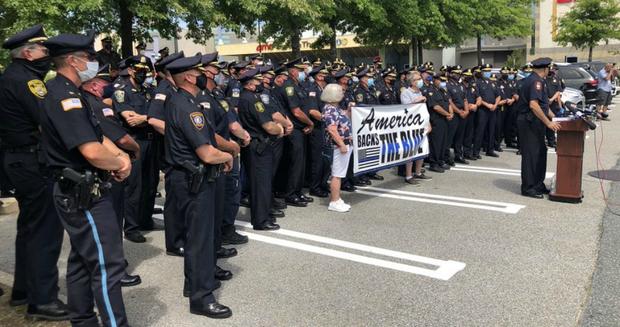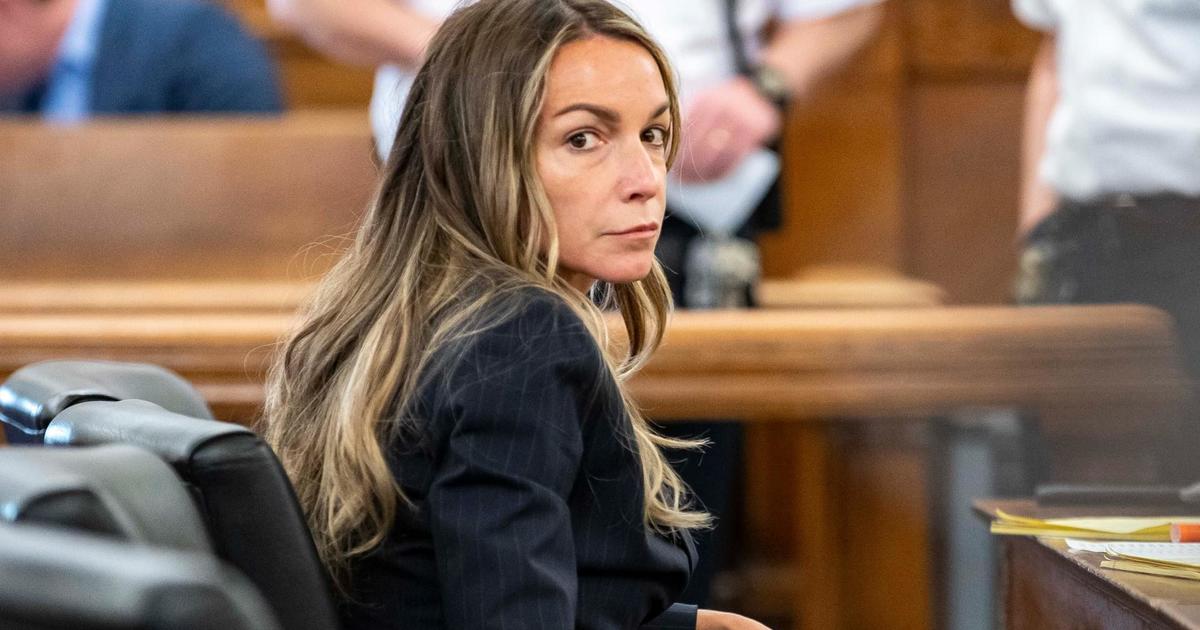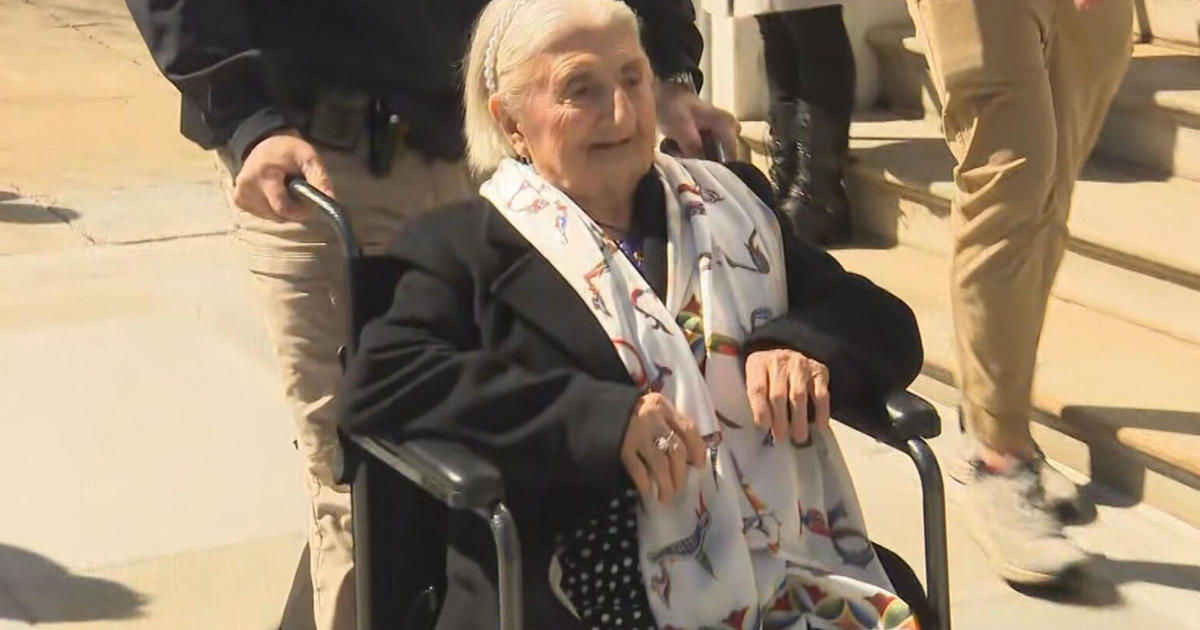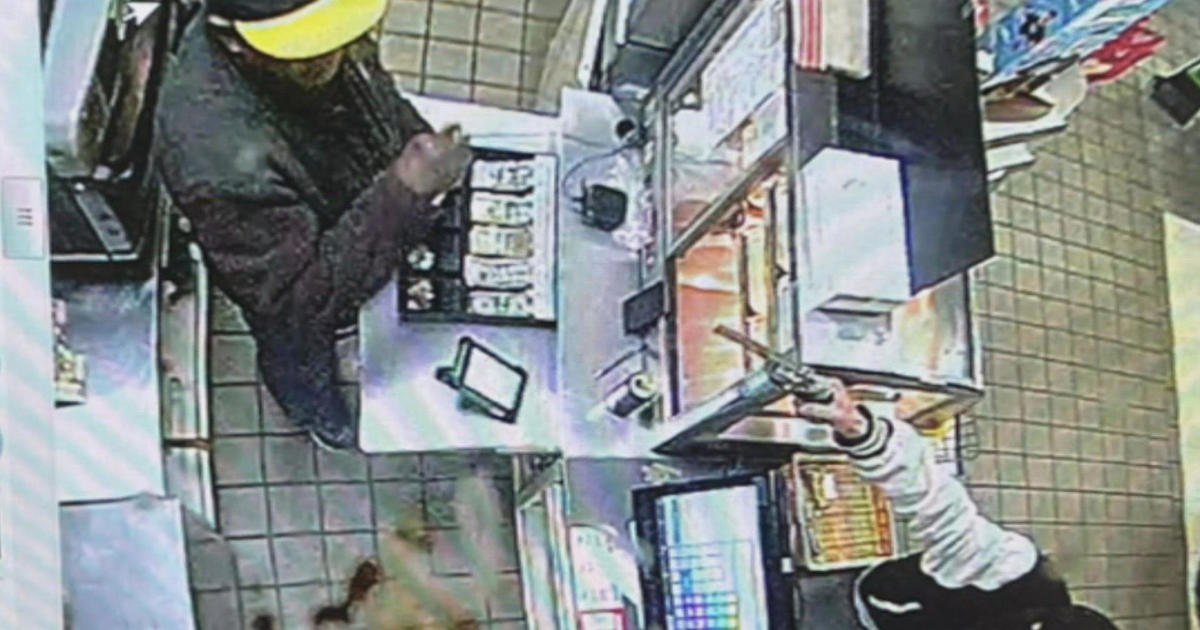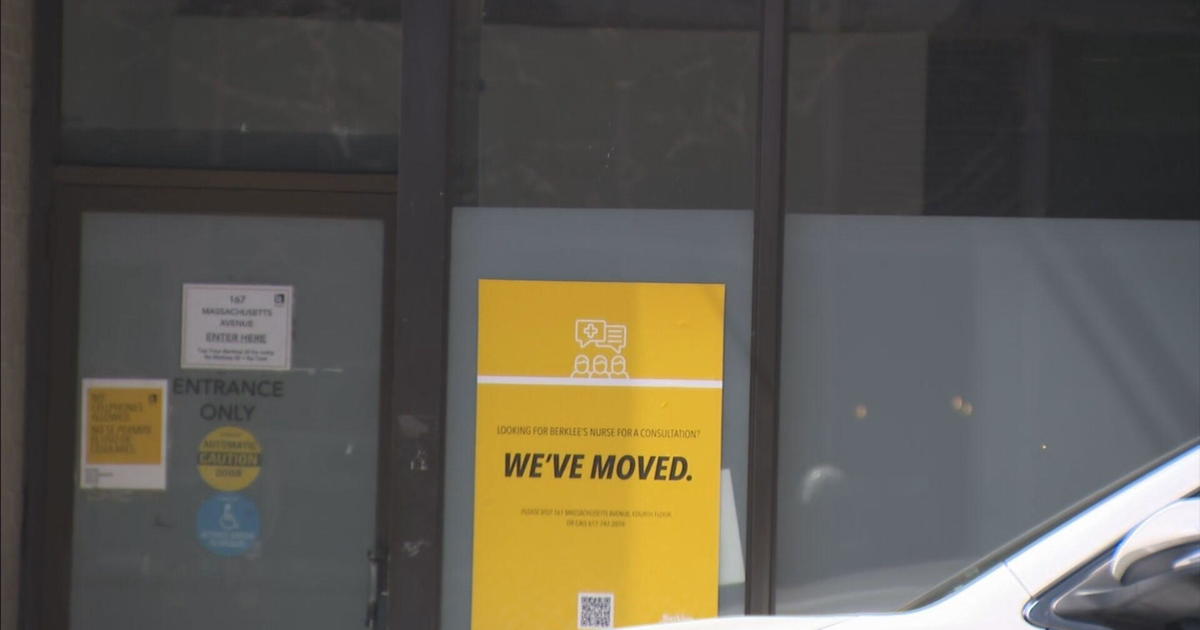Mass. Police Chiefs Criticize 'Knee Jerk Reaction' Police Reform Bill
FRAMINGHAM (CBS) -- The Massachusetts Police Chiefs Association spoke out for the first time against the state's police reform bills Tuesday. The Association, made up of the state's 351 police chiefs, said the bills would make it harder for police to keep the public safe.
"The legislation in the House and the Senate are nothing more than a knee jerk reaction to the events happening hundreds of miles away from here. These bills are not a response to any current situation in Massachusetts. These bills are being used to make a political statement. They do not address issues in Massachusetts," said Mass. Police Chief Ass. President and Hampton Police Chief Jeff Farnsworth. "As law enforcement leaders our primary mission is to ensure the safety of our residents and our communities. We do not believe that this legislation will do that. It has the very real possibility of doing just the opposite."
NAACP President Tanisha Sullivan said Massachusetts is not immune to deadly police officers incidents, though. "The data tells us that between 2013-2019, 56 people in the Commonwealth of Massachusetts have been killed in police-involved incidents," she told. "Thirteen-percent of the Massachusetts population is Black, yet 27% of those individuals killed by members of law enforcement are Black."
According to Farnsworth, police were not consulted during the creation of the House and Senate bills. "We have some of the finest most intelligent leaders in law enforcement standing behind me. We were left out."
"Who's writing all this stuff? I don't know. It's like I took out a bunch of garbage and throw it in one bill, and try to make some sense of it, and seem to think that that is going to solve every problem in our country and starting with police officers. We all know what that is: it's pandering, it's not right. because these professionals right here are amazing," said Yarmouth Police Chief Frank Frederickson.
The Association said they have been pushing to pass training standards, known as POST, for years. This includes a certification and de-certification process.
"Our legislature has time and time again stated that prior to passing any bills, they need to take the time to study and understand the bills and what it means to our communities. They have failed to do that," said Farnsworth.
"The current legislation has the potential to be extremely costly to our municipalities also the full cost has not even been vetted by the legislature. They have no idea how this is going to pan out to already strapped in municipalities. The legislature is also pushing all these changes regarding training to law enforcement at a time where they're simultaneously cutting our training funds."
Farnsworth criticized the House bill, saying it looks to "completely abolish our system of training."
According to Chairman of the Municipal Police Training Committee and Natick Police Chief James Hicks, police officers have received de-escalation training every year, for years.
"In 2015, we introduced training to not only our recruit officers but our senior officers on interacting with persons with mental illness or emotional distress. We did that in 2015. Well before Ferguson. Well before Minneapolis, and well before anyone in the legislature has given us support to do that. We did it on our own because it was the right thing to do," said Hicks.
The future of training is unclear under the House bill, Hicks said, since it dissolves the training committee.
Massachusetts police officers already do not use chokeholds, according to Farnsworth.
"The only time we would support a chokehold is in a last-ditch effort where if you're authorized to use deadly force, then you would be authorized for that. Nothing less. Nothing less. We would only allow it if an officer was trying to save their own life or somebody else's life. Never in another situation and we have never said anything different," he said.
"Make no mistake about it. Law enforcement in Massachusetts is under attack by a liberal element that wants to bring change that none of us understand. None of us know how we're going to look," said Farnsworth.
Another controversial issue is qualified immunity, a concept that protects government employees from legal claims.
"Qualified immunity is misunderstood...qualified immunity is a very complicated in-depth process, but what I can tell you that if an officer acts egregiously outside the bounds of law and operates recklessly, qualified immunity is not protecting him," said Farnsworth. "Our legislature thinks they're going to fix qualified immunity in 10 days when legal scholars across the country can't agree on it?"
"Nobody has a more vested interest in having good, decent police officers on the streets of the Commonwealth in these men and women standing behind me. This is what we do every day, making sure that we have the best of the best representing us, anything else is not acceptable.," Farnsworth said.
The House is expected to vote on their version of the bill Thursday. The Senate passed their own bill a week ago. Gov. Charlie Baker proposed new legislation last month.
Sullivan is advocating for change. "That's not to pass judgment on any individual member of law enforcement or any individual department. But it is to say we are not immune to these types of excessive uses of force. And we need to make sure that as a Commonwealth we are protecting the safety of all who are here. And also making sure we are doing what needs to be done to change a system that has disproportionately, without a doubt, the data is clear, harmed Black people," she said.
A statement from the House Speaker's Office said: "In addition to receiving more than 3,000 pieces of testimony on the bill, Speaker DeLeo, along with Chairs Cronin, Michlewitz and staff have engaged in extensive discussions with stakeholders, including members of the Massachusetts Black and Latino Legislative Caucus, Massachusetts Chiefs of Police Association and others. Speaker DeLeo participated in a remote meeting with the MCOPA on June 25, and staff has continued to proactively reach out to the Chiefs Association."
"This is about systemic change, it's not going to be easy. But it's going to make us stronger as a Commonwealth," Sullivan said.
